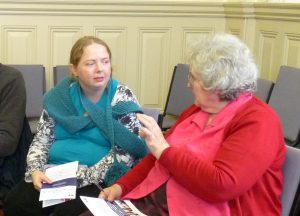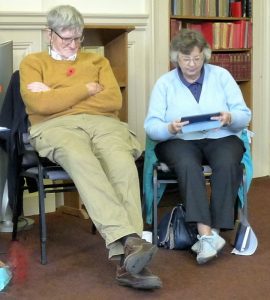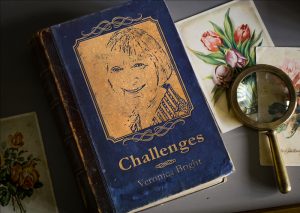Round of applause, please, as I welcome the multi-talented Della Parker to my blog .
.
The name Della Galton is familiar to many readers. Her first short story was published in 1987, and since then she’s sold over 1,500 short stories. She regularly writes serials, and features for magazines. Della has been published in every major women’s magazine, and she’s the agony aunt for Writers’ Forum. Her last two novels Ice and a Slice and The Morning after the Life Before deal sympathetically with the struggles of an alcoholic girl.
Della’s latest series of novellas are rather more light hearted and are released on 1st December, under her new pen-name Della Parker. I asked her to tell us a bit about the stories.
The Reading Group
The Reading Group is a series of novellas about six women, who live in the seaside village of Little Sanderton and come together every month to share their love of reading. No topic is off-limits: books, family, love and loss . . . and don’t forget the glass of red!
There are five novellas.
 January, February, March, April, Summer Holiday. They are published by Quercus which is part of the Hachette Group and are 99p apiece.
January, February, March, April, Summer Holiday. They are published by Quercus which is part of the Hachette Group and are 99p apiece.
January
Anne-Marie has always considered herself a bit of a matchmaker – never mind that she’s only got one real success under her belt. And this year she’s determined to up her game: Little Sanderton’s singles could certainly benefit from her expertise!
 But while Anne Marie thinks she knows what’s best for everyone else, her own life couldn’t be less of a fairytale romance. Between looking after her cranky father and running her own business, she doesn’t have time for a relationship. Her friends in the Reading Group know better though: after all, love can be found in the most unexpected of places . . .
But while Anne Marie thinks she knows what’s best for everyone else, her own life couldn’t be less of a fairytale romance. Between looking after her cranky father and running her own business, she doesn’t have time for a relationship. Her friends in the Reading Group know better though: after all, love can be found in the most unexpected of places . . .
This January the Reading Group is tackling Jane Austen’s Emma . . . which has some uncanny parallels with Anne-Marie’s life, but who’s got time for fiction when romance is in the air.
WRITING TIPS for wanna-be writers
While you’re here, Della, please would you give us three tips for writers at the start of their journey.
-
Join a writing group is my number one tip – if your aim is to get published, choose one where the tutor or leader is published and can show you how to do it.
-
Don’t send out your work too soon. Let it cool down, then edit it one more time.
-
Don’t take rejection personally.
Thank you very much for visiting us today, Della. I wish you huge success with The Reading Group. 
To give you all a taste of the series, December, the festive short story which introduces The Reading Group, can be downloaded FREE from Amazon.
So, do download it, read it, and then please rate and review it on Amazon. Your ratings really do help writers.
Visit Della’s website at http://www.dellagalton.co.uk
























![562_2016_Arvon_ClockTwr_original-475x300[1]](http://www.veronicabright.co.uk/files/2016/05/562_2016_Arvon_ClockTwr_original-475x3001-300x189.jpg)





